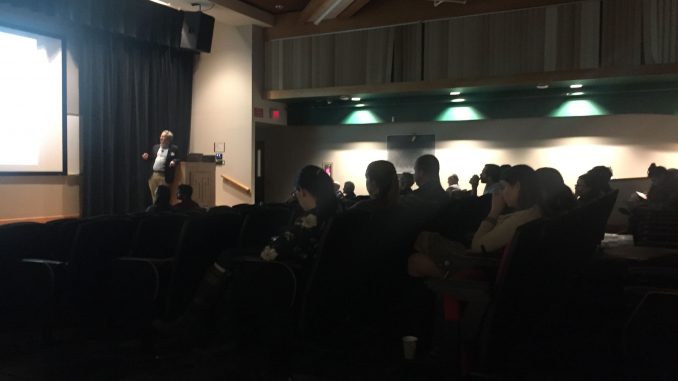
The Fels Institute for Cancer Research and Molecular Biology held a symposium on epigenetics, immunity and cancer at the Lewis Katz School of Medicine Student Faculty Center on Friday.
The event was organized by Yi Zhang, a professor of microbiology and immunology at Temple, Ivan P. Maillard, a professor of medicine at the University of Pennsylvania, and Ran Reshef, a professor of medicine at Columbia University.
Speakers at the symposium included researchers from the Children’s Hospital of Pennsylvania, Fox Chase Cancer Center and Coriell Institute for Medical Research. This was the first symposium of its kind held at the university, Zhang said.
Several speakers, including Zhang and Maillard, discussed the potential of epigenetic therapy. This type of treatment seeks to reverse the effect of cancerous cells on the body’s DNA to complement traditional immunotherapy as a treatment for various forms of cancer.
Epigenetic drugs have been shown to be effective at attacking cancer through animal testing, Zhang said.
“Think of the genome as hardware and epigenetics as software,” Carmen Sapienza, a professor of medicine at Temple, said. “When something is wrong with the hardware is you add software. This is similar with the epigenome and epigenetics.”
Sapienza described the epigenome as having “a bunch of switches that turn on and off.” Epigenetic therapy turns on the switches that allow the immune system to identify the tumor, Sapienza said.
The likelihood of a cancerous tumor regressing could increase if a patient is given both epigenetic therapy and immunotherapy, Zhang said. Immunotherapy works to expose the tumor while the epigenetic therapy activates the immune system, he added.
“At the end of the day, I hope that we can someday have a cancer-killer,” Sapienza said.
Although Zhang does not have plans for another symposium yet, he hopes to hold this event again in the future, he said.
“I hope that we can create a close collaboration in Philadelphia,” Zhang said. “It would be so great to bring more young people together.”


Be the first to comment